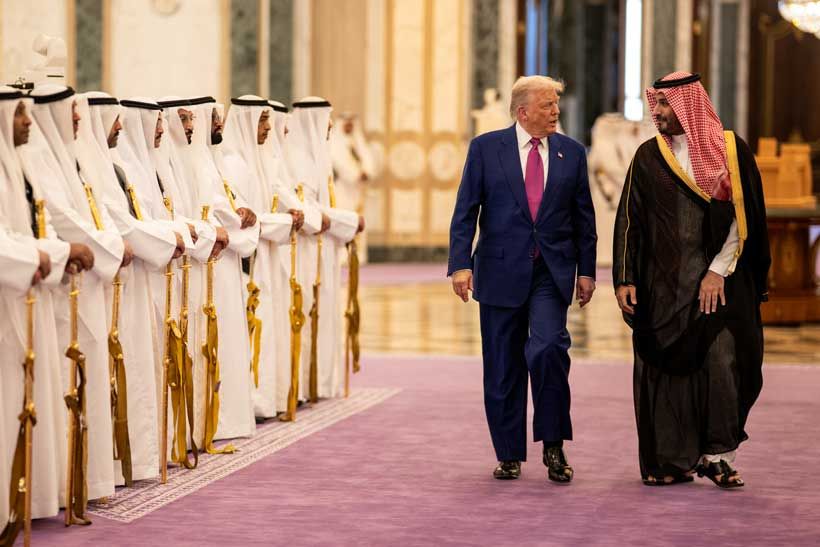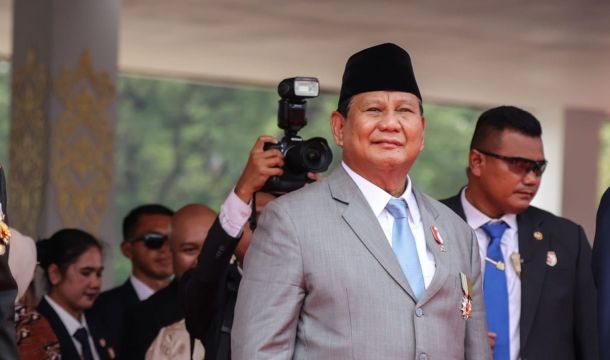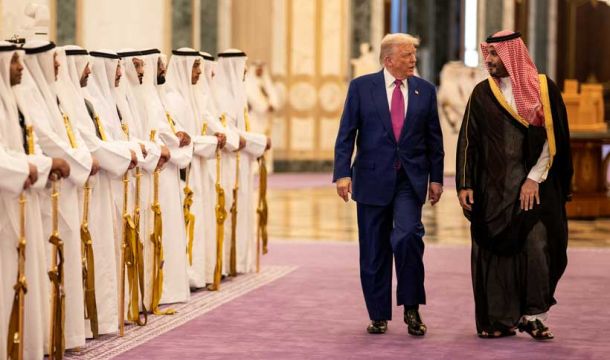From Pariah to Partner: Can the U.S. Make Saudi Arabia a Real Ally?
President Biden once vowed to make Saudi Arabia a “pariah.” Now Washington may do the opposite, offering Riyadh a U.S. security guarantee that could redefine America’s role in the Middle East. It would mark one of the sharpest foreign policy reversals in decades.
The pivot follows President Trump’s recently announced “strategic understanding” with Qatar, a partner that hosts the massive Al Udeid Air Base but has never been a treaty ally. The executive order pledged that America would “regard any armed attack” on Qatar as “a threat to the peace and security of the United States.” It sounded like NATO’s Article 5, but without Senate ratification, it remains policy, not law.
That distinction matters. Despite frequent talk of “alliances,” the U.S. has relatively few binding defense treaties, formal, Senate-ratified pacts obligating it to act if an ally is attacked. Beyond NATO, they include bilateral treaties with Japan, South Korea, and the Philippines, plus the ANZUS framework with Australia and New Zealand. These solemn legal commitments outlast administrations and anchor American credibility.
By contrast, “Major Non-NATO Ally” status granted to partners offers defense cooperation and access to U.S. equipment but no guarantee of intervention. It is a partnership, not a pledge.
The difference between treaty and assurance has real consequences. In 1994, the Budapest Memorandum offered Ukraine security “assurances,” not guarantees, in exchange for surrendering its nuclear arsenal. When Russia invaded in 2014, those promises proved unenforceable. That lesson is not lost on Crown Prince Mohammed bin Salman as he prepares for his November 17-19 visit to Washington. He will seek something that endures, a guarantee that can’t vanish with a change of administration.
For any U.S.–Saudi accord to be credible, it must rest on firmer ground than an executive order. The 1980 Carter Doctrine warned that “any attempt by an outside force to gain control of the Persian Gulf will be regarded as an assault on the vital interests of the United States.” It effectively extended America’s security umbrella over the Gulf.
Yet Riyadh remembers 2019, when Iranian drones struck Saudi oil facilities at Abqaiq and Khurais, briefly halving global production. Washington condemned the attack but did not retaliate. For the Saudis, that restraint exposed the gap between declaratory policy and real deterrence.
Today the strategic balance is shifting. Iran has weathered U.S. and Israeli strikes and sustained blows to its proxies, yet the regime endures. Hezbollah, Hamas, the Houthis, and allied militias are weakened but not destroyed. As Washington’s focus drifts towards Asia and the Western Hemisphere, Tehran could reconstitute its threat to the Kingdom, with help from China or Russia, both eager to counter U.S. power. Iran’s ambition to dominate the region has been delayed, not extinguished.
That is the backdrop against which MBS will measure any American offer. A credible security partnership must deter Iran, reassure investors, and align with the Kingdom’s Vision 2030 modernization plan. But under the Constitution, a defense treaty requires a two-thirds Senate majority, an uncertain prospect in today’s polarized politics. The Framers designed it that way. Having seen Europe’s entangling alliances draw nations into war, they made treaty-making deliberately difficult to ensure only lasting commitments could bind the republic.
Nearly eighty years ago, President Franklin D. Roosevelt met King Abdulaziz aboard the USS Quincy on Egypt’s Great Bitter Lake. That encounter forged the unwritten understanding that defined U.S.–Saudi relations for decades: American protection in exchange for Saudi stability and oil. The Carter Doctrine later codified that principle. What MBS seeks now is its modernization. An explicit reaffirmation that the U.S. remains the ultimate guarantor of Gulf security.
For Washington, the calculus is equally complex. Extending such a pledge could secure a historic Saudi-Israeli normalization, the long-sought next step in the Abraham Accords, and reassert American leadership in a region increasingly courted by Beijing. But it would also bind the U.S. more deeply to a volatile region at a time when voters’ appetite for foreign entanglements is low.
The promise of a new U.S.–Saudi security accord is both strategic and symbolic. Done right, it could formalize an era of pragmatic cooperation, enable progress toward peace in Gaza, and anchor a durable balance of power. Done poorly, it could create another illusion of protection, one that crumbles when tested, as Ukraine discovered.
From “pariah” to partner is a remarkable journey for Riyadh. Whether that partnership endures will depend on whether Washington is ready to make a real commitment or merely sign another memorandum destined to drift away in the Gulf.
This post first appeared in: https://moderndiplomacy.eu/2025/11/18/from-pariah-to-partner-can-the-u-s-make-saudi-arabia-a-real-ally/


More press articles

Southeast Asia Can’t Hedge on the US-China Rivalry Forever

From Pariah to Partner: Can the U.S. Make Saudi Arabia a Real Ally?
